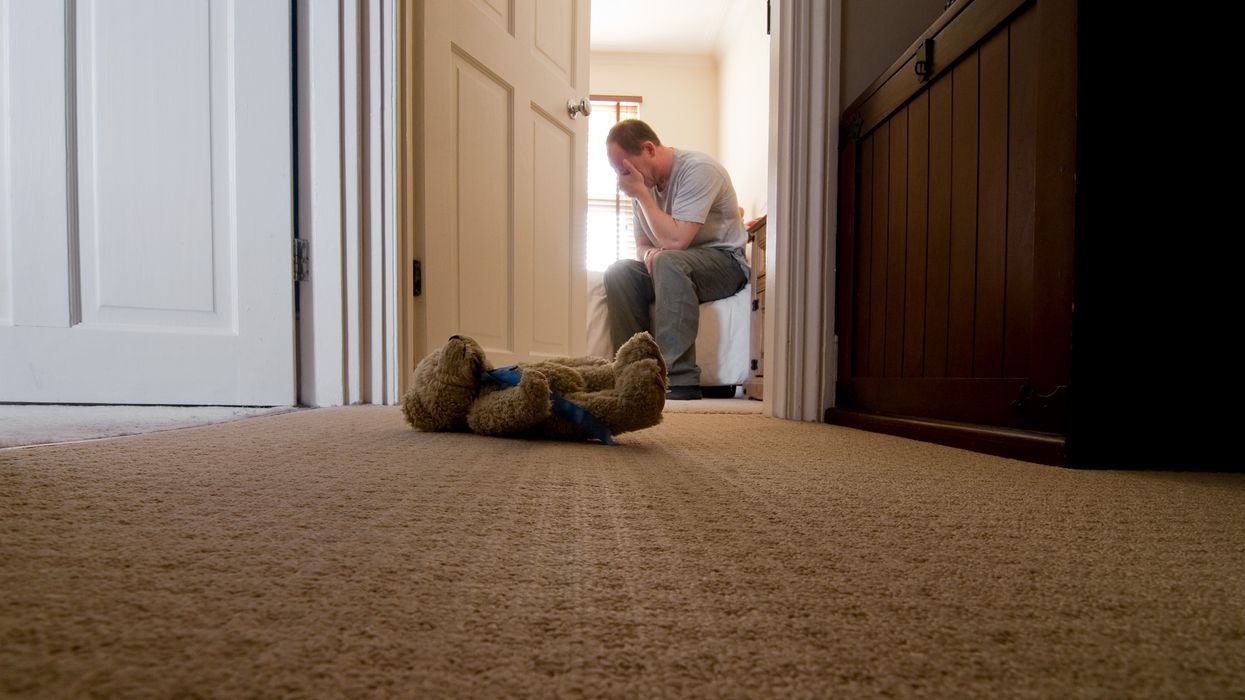As Father’s Day approaches, the UK’s leading pregnancy and baby loss charity, Sands, is extending vital support to grieving fathers and their families. With Sunday, 15 June, likely to be a challenging day for many, the charity is making special efforts to ensure bereaved dads do not feel alone.
Sands has announced extended hours for its confidential Freephone Helpline (0808 164 3332), which will be open from 10 am to 12 pm on Father’s Day. This service offers a safe, non-judgmental space for those affected by pregnancy or baby loss to talk and seek support. Support is also available via email (helpline@sands.org.uk) and through the charity’s online community at www.sands.community.
Every day in the UK, 13 babies die shortly before, during or soon after birth. In addition, at least one in six pregnancies ends in miscarriage. The emotional toll on families is deep and lasting, with key dates such as Father’s Day serving as painful reminders of loss.
The day, which is often filled with images of family and celebration, can be especially isolating for those who have experienced the death of a baby. Sands recognises that men in particular may find it difficult to talk about their grief, which can intensify feelings of loneliness and exclusion.
To help people connect and show solidarity, the charity is encouraging individuals to honour a bereaved father with a special online dedication. They also offer meaningful tokens and cards as gestures of remembrance and support.
Jen Coates, Sands’ Director of Bereavement Support, said: “This Father’s Day and beyond, let’s recognise all the wonderful dads and grandads in our lives. Whether their children can be held in their arms or in their hearts and minds, they’ll always be a dad or granddad.
“We know from bereaved families that the build-up to Father’s Day can be one of the most emotionally complex times of the year. We want people to know that Sands is here for them, not just on Father’s Day, but whenever they need support.”
Guidance for grieving dads
Sands has also issued practical advice for bereaved fathers navigating Father’s Day. The charity recommends acknowledging that the days leading up to the event may be more difficult than the day itself. It suggests reaching out to someone trusted, or speaking to an employer if time off is needed.
The charity emphasises that it’s acceptable to step back from social media or cancel plans to prioritise self-care. For some, visiting a meaningful location, looking at baby photos, or finding quiet time in nature can help provide comfort and reflection.
Sands also highlights the role of physical activity and peer connection. One of the unique ways the charity supports men is through Sands United FC – a network of football teams across the country for bereaved dads and family members. The initiative helps participants find strength through shared experiences and sport.
How to support a bereaved dad
For friends, colleagues, and family members who want to help, Sands provides advice on how to offer meaningful support. A key message is not to avoid talking about the baby. Using the baby’s name and acknowledging their existence can make a huge difference.
Simple gestures – such as sending a thoughtful message, giving a remembrance token, or writing a heartfelt card – can help grieving dads feel remembered and less alone.
Sands also encourages openness. Humour and light conversation may sometimes ease tension and offer relief, though this should always be guided by the individual’s comfort.
Vikas’ story: Remembering Aum
Vikas Jain, a volunteer befriender and parent speaker with Sands, lost his baby son Aum in January 2016. Aum passed away peacefully at just five days old. Since then, Vikas and his wife Reena have been actively involved in their local Birmingham Sands group, where they found invaluable support from other bereaved families.

“Please don’t forget about dads,” Vikas said. “Don’t minimise their experience or only ask after their partner. They have lost their baby too. Take time to listen and ask how they want colleagues or teams to be informed about their loss, just as you would for a bereaved mum.”
Vikas is also a passionate advocate for Sands’ Bereavement in the Workplace training, which helps organisations understand how to compassionately support grieving employees. He said: “My key advice to business leaders is to talk with the individual and show that you care. Acknowledging their loss – regardless of when it happened – means everything.”
He added: “Workplaces are a major part of people’s lives. Having the right language and confidence to offer support makes a real difference. Sands’ training can help create a compassionate workplace, which benefits everyone.”
Support beyond Father’s Day
Sands offers dedicated support for men year-round through a range of resources and services. In addition to its helpline and online community, the charity runs a men’s support Facebook group and continues to grow the Sands United football initiative nationwide.
With ongoing campaigning, research, and training, Sands is committed to ensuring that no bereaved parent or family member faces loss alone, on Father’s Day or any other time of year.
To learn more or to access support, visit: www.sands.org.uk/fathers-day.





